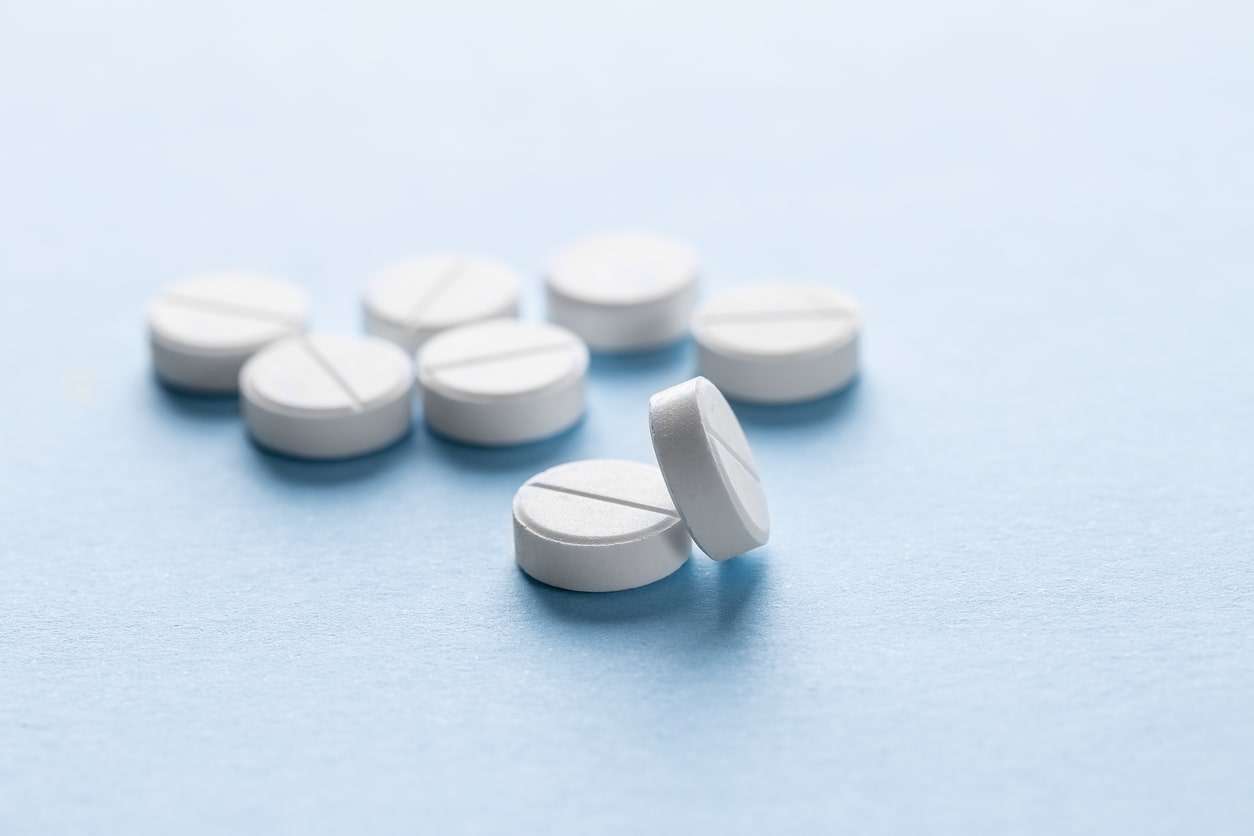Benadryl, also known as diphenhydramine, is a popular over-the-counter antihistamine medication commonly used to treat allergies and sleep disorders. While its effectiveness in providing relief from these conditions is undeniable, the potential for addiction, abuse, and withdrawal symptoms can also be a reality for some individuals. At Detox ATL, our team of compassionate individuals understands that addiction comes in many forms. We’ve helped individuals find a way out of the depths of addiction. If you or someone you know is struggling with addiction, give us a call now at 470-828-2226. We can help you find a program that helps fit your needs.
What is Benadryl Used For?
Benadryl is primarily used to treat allergies and sleep disorders. It works by blocking histamine, a chemical produced by the body during an allergic reaction. This action helps to alleviate symptoms such as sneezing, itching, runny nose, and watery eyes. Additionally, Benadryl has sedative properties, which makes it a popular choice for individuals suffering from insomnia or other sleep-related issues.
Is Benadryl Addictive?
Although Benadryl is not classified as a controlled substance and is considered safe when used as directed, it can become addictive for some individuals. This is primarily due to the sedative properties of the drug, which can lead to a sense of relaxation and drowsiness. Over time, users may develop a psychological dependence on Benadryl to achieve these feelings, even if they are no longer using the medication for its intended purpose.
Signs and Symptoms of Benadryl Abuse
When misused or taken in excessive amounts, individuals can find themselves quickly depending on the drug. Recognizing the signs and symptoms of Benadryl abuse is crucial for early intervention and treatment. Common signs of abuse may include:
- Taking higher doses than recommended: Individuals abusing Benadryl may take larger doses than advised on the packaging or by healthcare professionals in an attempt to achieve stronger effects, such as increased sedation or euphoria.
- Using Benadryl for non-medical purposes: People who misuse Benadryl may use the drug to self-medicate for issues like anxiety or insomnia or to achieve a sense of relaxation or altered consciousness.
- Frequent use or prolonged usage: Those abusing Benadryl may take the medication more frequently than necessary, or continue using it for an extended period, even when it is no longer needed for its intended purpose.
- Changes in behavior: Individuals may exhibit changes in their behavior, such as increased secrecy, social isolation, or a lack of interest in activities they previously enjoyed.
- Cognitive impairment: Overuse of Benadryl can lead to cognitive impairment, including confusion, memory problems, difficulty concentrating, or poor decision-making.
- Physical symptoms: Physical symptoms such as dizziness, drowsiness, dry mouth, constipation, blurred vision, and urinary retention can happen. In more severe cases, individuals may experience rapid or irregular heartbeat, seizures, or hallucinations.
- Tolerance and withdrawal: Individuals may develop a tolerance to its effects, requiring higher doses to achieve the desired results. When the drug is discontinued, they may experience withdrawal symptoms such as insomnia, anxiety, irritability, nausea, tremors, or headaches.
- Neglecting responsibilities: Those struggling with Benadryl abuse may neglect their personal, professional, or academic responsibilities as a result of their drug use.
- Financial or legal problems: Benadryl abuse can lead to financial difficulties due to the cost of purchasing the medication or the consequences of impaired decision-making. In some cases, individuals may engage in illegal activities, such as forging prescriptions or stealing the medication to obtain more of the drug.
Risks Factors for Benadryl Addiction
Certain factors may increase an individual’s risk for developing a Benadryl addiction, such as:
- A history of drug or alcohol addiction
- Chronic insomnia or other sleep disorders
- Prolonged use of the medication, even after the initial symptoms have subsided
- A lack of awareness about the potential for addiction
- Easy access to the medication, given its over-the-counter availability
Side Effects of Benadryl Addiction
Benadryl abuse has several side effects that can impact an individual’s physical, mental, and emotional well-being. The side effects of Benadryl include:
- Cognitive impairment: Prolonged use of Benadryl can lead to cognitive issues such as memory problems, difficulty concentrating, confusion, and poor decision-making.
- Drowsiness and fatigue: One of the most common side effects of Benadryl addiction is drowsiness, which can result in chronic fatigue and negatively impact daily functioning.
- Physical symptoms: Benadryl can cause various physical symptoms, including dizziness, dry mouth, constipation, blurred vision, urinary retention, and rapid or irregular heartbeat.
- Increased risk of falls and accidents: The drowsiness and dizziness associated with Benadryl addiction can increase the risk of falls, accidents, and injuries, particularly in older adults.
- Mood changes: Individuals struggling with Benadryl addiction may experience mood changes such as increased irritability, anxiety, or depression.
- Dependence and withdrawal: Prolonged use of Benadryl can lead to physical dependence, resulting in withdrawal symptoms when the drug is discontinued. These symptoms may include insomnia, anxiety, tremors, nausea, headaches, and, in rare cases, hallucinations.
- Interactions with other medications: Benadryl addiction can increase the risk of interactions with other medications, potentially leading to severe side effects or decreased effectiveness of other drugs.
- Impact on relationships: Benadryl addiction can strain relationships with family, friends, and colleagues due to changes in behavior, mood, and an inability to meet personal and professional obligations.
- Financial and legal problems: Those struggling with Benadryl addiction may face financial difficulties due to the cost of obtaining the medication or impaired decision-making. In some cases, individuals may engage in illegal activities to acquire more Benadryl, such as forging prescriptions or theft.
- Worsening of pre-existing health conditions: Benadryl addiction can exacerbate underlying health issues, particularly in older adults, due to its anticholinergic properties. This can result in an increased risk of cognitive decline, urinary retention, and other complications.
Long-Term Health Effects of Benadryl Addiction
Prolonged addiction to Benadryl can have long-lasting consequences for an individual’s health. Some of these effects include:
- Increased risk of dementia: Research has shown that long-term use of anticholinergic medications, like Benadryl, may be linked to an increased risk of developing dementia later in life.
- Liver and kidney damage: Prolonged use of Benadryl can cause damage to these vital organs, resulting in severe health complications.
- Cardiovascular issues: Long-term abuse of Benadryl can lead to irregular heartbeat, increased blood pressure, and an increased risk of heart attack or stroke.
Finding Treatment For Over-The-Counter Medications + Benadryl Detox Options
When attempting to detox from Benadryl, it is crucial to do so safely and effectively to minimize the risk of complications. There are several detox options available, including:
- Tapering: Gradually reducing the dosage of Benadryl over time can help to minimize withdrawal symptoms and reduce the risk of complications. This method allows the body to adjust to lower levels of the medication, making it easier to discontinue use completely. Tapering should be done under the guidance of a healthcare professional who can develop a personalized plan based on the individual’s specific needs and circumstances.
- Medical drug detox: For those with severe withdrawal symptoms or a history of addiction, a medical detox program may be the most appropriate option. Our medical and drug detox programs in Atlanta involve close supervision by healthcare professionals who can monitor the individual’s progress and manage withdrawal symptoms as needed. Medication-Assisted Treatment and other medications may be prescribed to help manage symptoms and ensure a safe detox process.
- Over-the-counter medications: In some cases, over-the-counter medications may be used to help manage withdrawal symptoms. For example, nonsteroidal anti-inflammatory drugs (NSAIDs) can help to alleviate headaches, while over-the-counter sleep aids may be used to help manage insomnia. It is important to consult a healthcare professional before using any over-the-counter medications to ensure they are safe and appropriate for the individual’s specific needs.
- Support groups and therapy: Participating in support groups or seeking family therapy or trauma therapy can provide emotional support and help individuals develop coping strategies for dealing with withdrawal symptoms. These resources can also help address any underlying issues that may have contributed to the development of Benadryl dependence.
- Holistic approaches: Some individuals may find relief from withdrawal symptoms through holistic rehab approaches, such as meditation, yoga, acupuncture, or massage therapy. These methods can help to alleviate stress and anxiety and promote overall well-being during the detox process.
- Lifestyle changes: Implementing healthy lifestyle changes, such as improving sleep hygiene, engaging in regular exercise, and maintaining a balanced diet, can help to support the body’s natural detoxification process and alleviate withdrawal symptoms.
Finding Treatment for Benadryl Addiction & Over the Counter Medications
Treatment for Benadryl addiction includes multiple behavioral health interventions such as therapy, psychiatry, trauma therapy, and more. If you or someone you know is struggling with Benadryl addiction or withdrawal, it is important to seek professional help. Consult a Detox ATL to discuss the most appropriate detox options for your specific situation and to develop a personalized plan for recovery. With the right support and guidance, you can overcome Benadryl withdrawal and regain control of your health and well-being.






